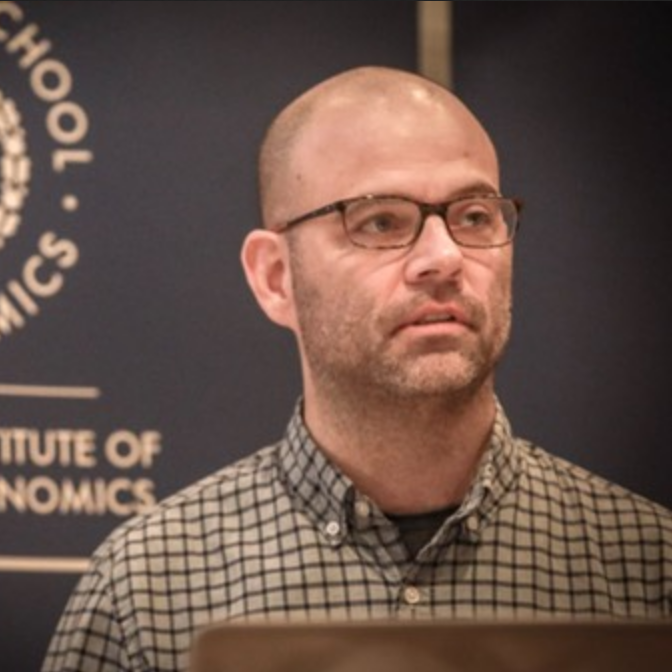Causal Inference I
• Starting February 3rd
All course material is available free and open source via our Github Repository .
Register Today
Sign-up today to ensure access to this workshop.
WHAT'S INCLUDED
- Attendance to the workshop with Prof. Scott Cunningham.
- 30-minute office hours with your Instructor for full-paying attendees.
- Complete set of example code to implement the methods discussed.
- PDF lecture slides and video recordings for later reference.
Our workshop will bring you to the cutting edge
February 3rd
Day 1 • 9am-5pm CST
- Introduction to causal inference
- Potential outcomes and counterfactuals
- Randomization, selection bias
- Randomization inference
February 4th
Day 2 • 9am-5pm CST
- Introduction to causal graphs
- Propensity score matching
- Nearest neighbor covariate matching
February 10th
Day 3 • 9am-5pm CST
- Instrumental variables
- Canonical estimators (2SLS, Wald)
- Intuition and assumptions
- Weak instruments and 2SLS bias
- Heterogenous treatment effects
- Local average treatment effect
February 11th
Day 4 • 9am-5pm CST
- Introduction to regression discontinuity
- Regression discontinuity identification
- Nonlinearities and estimation
- Nonparametric estimation
- General tips (data visualization, density tests, etc)
Who will be hosting this session?

-
“
I can't endorse these workshops highly enough. The ambitious syllabus is covered in great detail, interlaced with tangible examples and useful economic history lessons in addition to personal anecdotes. Anybody interested in gaining a deeper understanding in the science (art?) of causal inference and its recent developments will not regret investing a few hours (and a few dollars) in Scott's workshops
-
“
Your effort to explain complex contents in such a practical way and your patience, please keep doing what you do, because it's excellent and so much needed in a difficult and sometimes not very inclusive field such economics.
-
“
The course is taught in such a pedagogical manor, and communicates a lot of complex material in a short amount of time. It is a huge bonus how attentive Scott was to our questions and comments. This course would be super useful anyone working with causal inference (or hoping to) whether you are advanced or just a beginner. Only nice words to say - such an amazing week. I kind of want to do it again already.
-
“
Scott's ability to explain fairly complex methods and concepts in an intuitive way, plus his complete openness and availability to answer questions as they come around, and his commitment to democratize causal inference (truly admirable and very rare within economics) make this a wonderful workshop that I would highly recommend to anyone wanting to learn more about the topic and methods.
Frequently Asked Questions
- Are discounts available?
-
Yes! Students, postdocs, predocs and residents of middle-income countries can attend for $50 plus a few dollars in fees. Non-tenure track faculty can attend for $95. To receive your promo code, please include a photo of your student ID. International folks from low-income countries can attend for $1. To receive promo codes, email us at causalinf@mixtape.consulting.
- How do I access the material I need for the course?
-
The course material will be availabe forever on Github. We will also send you links to the video recordings on Vimeo after the workshop is completed.
- How long will it take me to master this?
-
That's a great question. Causal inference, and econometrics more generally, is largely a “returns to experience” type of skill as much as it is a returns to education. The best way for you to learn anything in these classes is to work on projects that require it. Our class is designed as a fast track to both.
- Will we practice programming?
-
Yes, I will distribute assignments with readings with directions the night before. We will help each other in Discord, asking questions, pointing out mistakes I'm making, and helping one another problem solve. I will usually assign more than we can do that faster workers always have something to work on. And in the end, I will distribute the solutions. It'll be fun I promise!
- Will there be recordings?
-
We will upload recordings to Vimeo and they will be password protected, so that only attendees can watch the videos.
- I'm nervous that I can't handle the difficulty of the class.
-
Don't be. I'm a good teacher. If I can learn this, so can you.
- How should I prepare?
-
I encourage you to read my book, Causal Inference: The Mixtape which is available online for free here. Whenever possible, then read the underlying articles that interest you to go deeper.
- I don't have a Stata license. It's too expensive. What do I do?
-
No worries! Stata has graciously provided a temporary license for all participants. Before the workshop starts, I will distribute to all of you your license so that you can have it.
- Are there office hours?
-
If you are paying the full price, you get 30 minutes of office hours per workshop. So if someone paid for the bundled workshops, you would get 1 hour. I will be creating a calendy app with times so that you can sign up for office hours over the semester. We can talk about whatever you want.